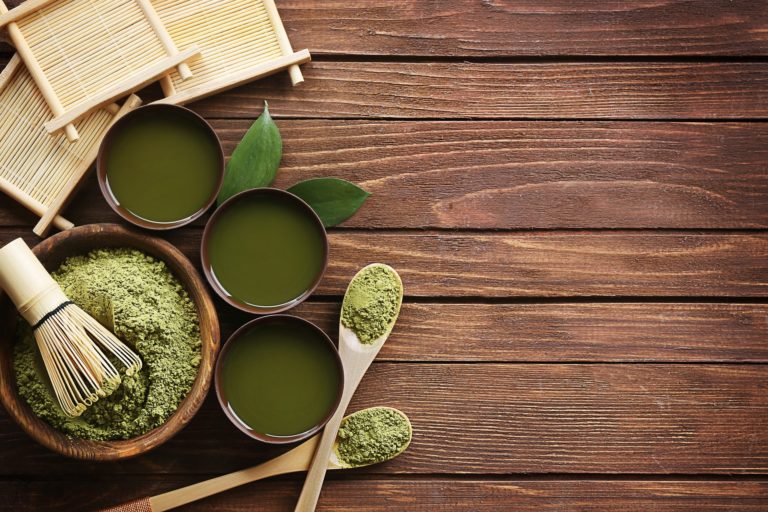
The past few years have seen a tremendous trend rise promoting the drinking of matcha, which, if you’re like me and haven’t tried it yet, is still a mysterious green powder you can buy at most grocery stores. As it turns out, though, matcha isn’t such a mystery, and it’s grown as popular as it has for a reason.
Matcha is unlike some other teas in that it’s actually made from the grinding up of tea leaves into a powder. It’s turned into kind of a fad because of its specificity, its ability to stand out as a frothy beverage amongst a host of plain, boring, flat steeped teas.

Because of its powdered quality, matcha makes for a unique tea experience, since you don’t have to steep a tea bag. Instead, you can create a matcha beverage pretty easily by whisking the powder into hot water. The resulting product is an almost latte-esque drink that doesn’t require the milk or effort necessary in the latte-making process. This preparation process may seem somewhat foreign to tea drinkers now, who are used to the steeping process, but powdered tea is actually a pretty old practice dating back to early Chinese customs.

Matcha can be served as a hot tea drink, but you may also come across it being served in other specialty foods, like bubble tea or ice cream. This distinct flavor is lauded by many, especially those who have a high reliance on caffeine, given that this variety of tea derives a high caffeine content because the tea leaves are able to retain so much caffeine by being grown in the shade.
Its caffeine isn’t the only thing matcha is lauded for, however. It’s also known for being rich in health benefits ranging far and wide, from disease prevention to promotion of heart health. Perhaps one of the most simple benefits it provides, that most would agree they could get behind, is its rich concentration of vitamins and minerals, such as Vitamin C, magnesium, and zinc.
Matcha is also thought to be beneficial in that it is thought to have a calming and enhanced mood effect. I’m not sure how accurate this belief is, though, due to the fact that it’s also supposed to have a higher caffeine content than most teas.
Perhaps what’s most well-recognized about matcha, however, is that it is rich in antioxidants. Antioxidants are powerhouses if you can find food that contains them. They play a huge role in heart health and helping to ward off some risks of bodily diseases. In particular, matcha can help to lower one’s cholesterol, which is a big contributor to poor heart health. You may consider incorporating a dose of matcha into your everyday diet if you find yourself in the unfortunate situation of having high blood pressure, heart disease, or any other heart-related condition that requires monitoring food and drink intake.
In any event, matcha is a good detoxifier and can provide some powerful health benefits day to day. If you consider yourself a regular tea-drinker and want to switch things up, you may think about trying your hand at this green-lover’s drink and seeing what all the rave is about.